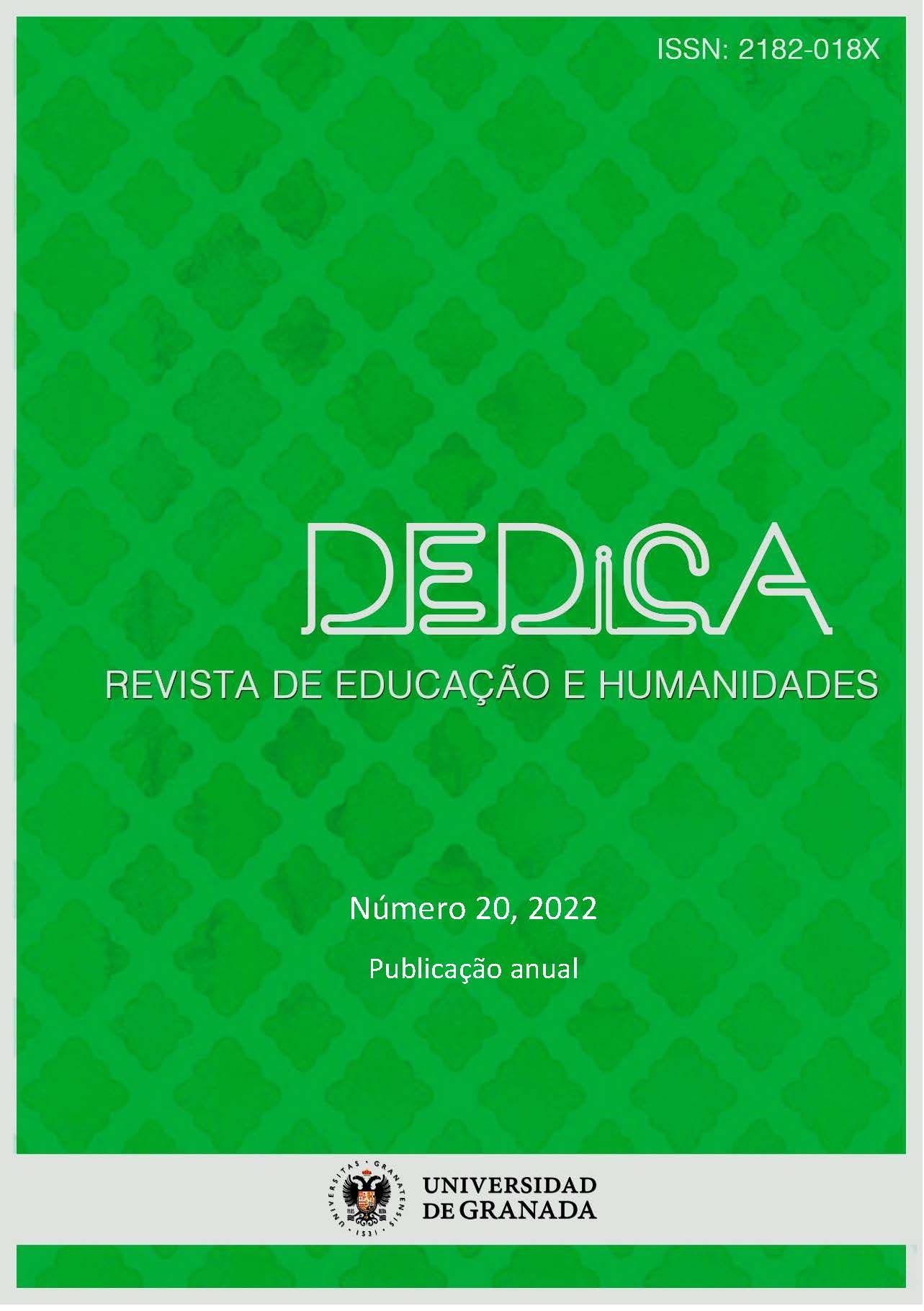Analysis of the use of ICT to develop writing skills in English as a foreign language classrooms
DOI:
https://doi.org/10.30827/dreh.vi20.25282Palavras-chave:
education; English as a Foreign Language; ICT; writing skillsResumo
The use of Innovation and Communication Technology (ICT) in educational settings has become of outmost importance during the 21st century. The countless benefits implying the application of these tools have strongly impacted on education as we know it nowadays. The benefits platforms provide, in combination with the practice of writing skills, are strongly highlighted. This chapter is mainly focused on using three widely known digital platforms ('Storyboardthat', 'Telegram' and 'Edmodo') to improve written production skills of English as a Foreign Language students. These proposal activities are intended to be a starting point of a combination of ICT platforms and the development of the writing skills of students who, in principle, need more engagement and motivation towards written production tasks. The activities also mean to encourage both teacher and peer feedback, as well as foster creativity and imagination.
Downloads
Referências
Álvarez Gil, F. J. (2022). Análisis de textos audiovisuales para la enseñanza de contenidos históricos en la especialidad de Filología Inglesa. En Felipe Morales, A.; Cremades García, R.; Villanueva Roa, J. (eds.), Comunicando en el siglo XXI: Avances metodológicos y nuevas estrategias, (pp. 86-96). Valencia (España): Editorial Tirant lo Blanch.
Álvarez Gil, F. J.; Alonso Almeida, F. (2017). El cine como herramienta didáctica para la inclusión del elemento cultural en la clase de inglés como lengua extranjera. Revista Educação e Linguagens, 6(11), 44-62.
Álvarez Gil, F. J.; Domínguez Morales, M. E. (2020). Fomento del pensamiento crítico en la enseñanza de lenguas extranjeras a través del uso de espacios virtuales de aprendizaje. En Postigo Fuentes, Y.; Alcalde Peñalver, E.; Portnova, T. (eds.), La docencia tiene TIC: un guiño al nuevo discente (pp. 47-60). Valencia (España): Editorial Tirant lo Blanch.
Álvarez Gil, F. J.; Payet, K. M. (2020). Adquisición de segundas lenguas a través del uso de entornos virtuales de aprendizaje. En Claves para la innovación pedagógica ante los nuevos retos: respuestas en la vanguardia de la práctica educativa (pp. 3304-3312). Barcelona (España): Octaedro.
Álvarez Gil, F. J.; Sánchez Cuervo, M. E. (2019). Blended learning: una propuesta para el desarrollo de la expresión escrita en el aula de inglés como lengua extranjera. En Barquero Cabrero, M.; Rodríguez Terceño, J.; Barrientos Báez, A. Diseñando la nueva docencia del siglo XXI (pp. 1-12). Madrid (España): Editorial Pirámide (Grupo Anaya).
Álvarez Gil, F. J.; Sánchez Cuervo, M. E. (2018). La enseñanza de la escritura en el primer nivel de la ESO. Barcelona (España): Gedisa.
Azmi, N. (2017). The benefits of using ICT in the EFL classroom: from perceived utility to potential challenges. Journal of Educational and Social Research, 7(1), 111-119, doi:10.5901/jesr.2017.v7n1p111
Boudjadar, T. (2015). ICT in the writing classroom: the pros and the cons. International Journal of Applied Linguistics & English Literature, 4(1), 8-13. doi:10.7575/aiac.ijalel.v.4n.1p.8
Centre for Education Statistics and Evaluation (2021), Use of information and communications technology (ICT) in the teaching and learning of writing. Sidney (Australia): NSW Department of Education, education.nsw.gov.au/cese
Chua, Y.; Suliman, A. (2019). ICT: an effective platform to promote writing skills among Chinese primary school pupils. Arab World English Journal, 10(4), 223-237, doi:10.24093/awej/vol10no4.17
Fernández-Batanero, J. M.; Montenegro Rueda, M.; Fernández Cerezo, J.; Román Gravan, P. (2021). Impact of ICT on writing and reading skills: a systematic review (2010-2020). Texto Livre: Linguagem e Tecnologia, 14(2), 1-12, doi:10.35699/1983-3652.2021.34055
Iksan, Z. H.; Saufian, S. M. (2017). Mobile learning: innovation in teaching and learning using Telegram. International Journal of Pedagogy and Teacher Education, 1(1), 19-26. doi:10.20961/ijpte.v1i1.5120
López-Henao, J. A. (2017). The influence of ICT in the development of writing skills through an online platform. Matices en Lenguas Extranjeras, 1 1-27.
Silva, T.; Colleen, B. (2004). Research in teaching writing. Annual Review of Applied Linguistics, 24, 70-106, doi:10.1017/S0267190504000042
Susilawati, P. P.; Sundayana, W. (2016). The use of Edmodo in teaching writing in a blended learning setting. Indonesian Journal of Applied Linguistics, 5(2), 242-252, doi:10.17509/ijal.v5i2.1348
Wahjuningsih, E.; Santihastuti, A.; Kurniawati, I.; Arifin, U. M. (2020). Storyboard That' platform to boost students' creativity: can it become real? IOP Conference Series: Earth and Environmental Science, 485, 1-6.
Warschauer, M. (2010). Invited commentary: new tools for teaching writing. Language Learning and Technology, 14(1), 3-8.
Yunus, M. M.; Nordin, N.; Salehi, H.; Embi, M. A.; Salehi, Z. (2013). The use of information and communication technology (ICT) in teaching ESL writing skills. English Language Teaching, 6(7), 1-8, doi:10.5539/elt.v6n7p1












